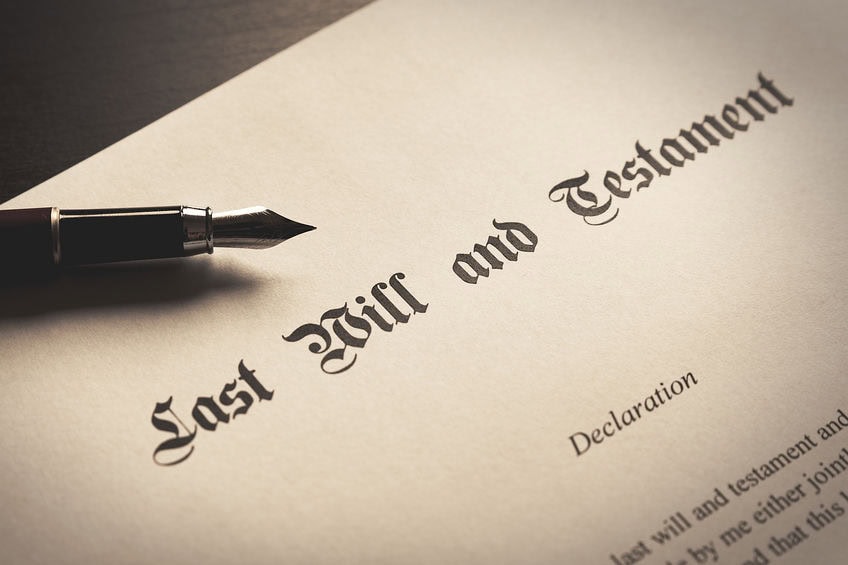This is the final blog of a series of four blogs about family provision applications (“FPA”) in Queensland. This blog explores who is considered as a person’s spouse in Queensland, and whether that person can bring an FPA against an estate.
If you are married or have registered your relationship, there is no doubt that, at law, you are a person’s spouse. However, it is often not as clear cut if you are in a defacto relationship (including same sex) with a person when they die. This is because often or not there is no registration of the relationship.
In Queensland Section 5AA (1) of the Succession Act 1981 (Qld) states that, generally, a person’s spouse is that person’s:
- husband or wife;
- defacto partner, as defined in the Acts Interpretation Act 1954 (Qld), section 32 DA; or
- civil partner as defined in the Acts Interpretation Act, schedule 1.
However 5AA (2) clarifies that a person is a spouse of a deceased person only if, on the deceased person’s death:
- The person was the deceased’s husband or wife; or
- The following applied to the person-
- The person was the deceased’s de facto partner as defined in the Acts Interpretation Act, section 32 DA;
- The person and the deceased lived together as a couple on a genuine domestic basis within the meaning of the Acts Interpretation Act for a continuous period of 2 years ending on the deceased’s death; or
- The person was the deceased’s civil partner, as defined in the Acts Interpretation Act, schedule 1.
- For Part 4 of the Succession Act which deals with FPAs, the person was-
- A person identified above in (i), (ii) and (iii); or
- the deceased’s dependant former husband or wife or civil partner.
Section 5AA (4) defines a “dependent former husband or wife or civil partner”, of a deceased person as a person who:
- was divorced by or from the deceased at any time or was in a civil partnership with the deceased that was terminated under the Civil Partnerships Act 2011, section 19;
- had not remarried or entered into a civil partnership with another person before the deceased’s death; and
- was on the deceased’s death receiving, or entitled to receive, maintenance from the deceased.
Schedule 1 of the Acts Interpretation Act defines a civil partner as a person who is a party to a civil partnership.
The Civil Partnerships Act 2011 (Qld) defines a civil partnership as a legally recognised relationship that may be entered into by any two adults, regardless of their gender. You may register your civil partnership/relationship with the Department of Births Deaths and Marriages.
However, when it comes to Defacto partners it is often not as clear cut.
Section 32DA of the Acts Interpretation Act states that a “de facto partner” is a reference to one or two people who are living together as a couple on a genuine domestic basis, but who are not married to each other or related by family.
In deciding whether two persons are living together as a couple on a genuine domestic basis, any of their circumstances may be taken into account, including, for example any following:
- the nature and extent of their residence;
- length of their relationship;
- whether or not a sexual relationship exist or existed;
- the degree of the financial dependence or interdependence or any arrangement for financial support;
- their ownership, use and acquisition of property;
- the degree of mutual commitment to a shared life, including the care and support of each other;
- the care and support of children;
- the performance of household tasks; and
- the reputation and public aspects of their relationship.
No particular finding in any circumstances is regarded as necessary in deciding whether two people are living together as a couple on a genuine domestic basis.
However, two people are not necessarily regarded as living together as a couple on a genuine domestic basis only because they have a common residence.
What if we are not living together, but we have a reason?
Section 2F (4) of the Acts Interpretation Act 1901 (Cth) states that two persons are taken to be living together on a genuine domestic basis if those people are not living together on a genuine domestic basis only because of:
- a temporary absence from each other; or
- illness or infirmity of either or both of them.
Accordingly, if it can be proved that you had a temporary absence from living with each other or because of illness or infirmity or both, you could still be considered as the deceased person’s de facto spouse.
We are here to help
If you are unsure whether you would legally be considered as a deceased person’s spouse or wish to defend a claim brought by an alleged spouse against a deceased estate, please contact our Wills and Estates Department on (07) 3025 9000. Our Wills and Estates Team practise exclusively in this area of Law and will discuss the matter with you on an obligation free basis.

